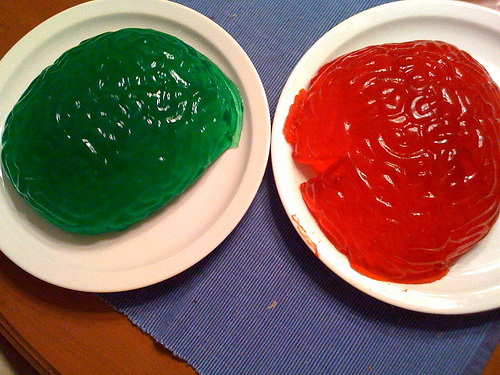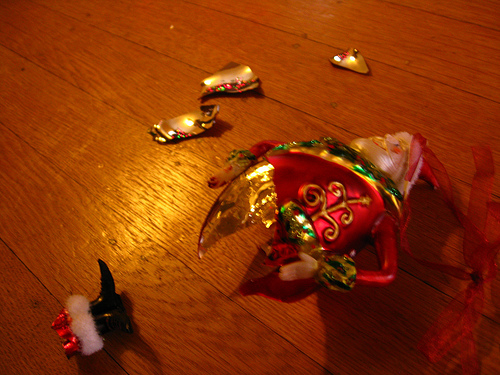Helping Clients understand how our Brains control our Minds.
The video below is a TEDTalk presentation from Jill Bolte Taylor.
Jill’s talk is about her learning from a stroke she had some ten years ago. But the parts of her presentation that I’m discussing here are the ways in which the two hemisphere’s of the brain operate: right looks after the “now” whilst left looks after the “past” to prepare for the “future”.
Jill Bolte Taylor’s: “Stroke of Insight”
Hemispheres and what they’re responsible for.
We generally know that the Right Brain is artistic, whilst the Left brain is Logical. What’s generally less known – according to Jill Bolte Taylor (time: 00:03:00) – is that the Right Brain operates like a parallel processor, whilst the Left Brain works like a sequential processor. In other words, assuming speeds to be the same, the Right Brain operates like a Sony PS3 (many things can be processed all at the same time), whereas the Left Brain operates like the first IBM PC computers whereby one task is processed to completion before the next can begin.
For the purposes of psychotherapy, we also learn from Jill’s presentation (time: 00:03:25) that the Right Brain “is all about this present moment”; it is responsible for the “now” parts of our life. Conversely, the Left brain “is all about the past, and all about the future”; it is responsible for remembering the past, categorising it, comparing it with what’s happening in the now and making predictions about what’s going to happen next.
I find this knowledge helpful to have in mind when new patients come to work with me in counselling; those who tell me that their pasts have no influence on their present lives.
Patients who (need to) deny past influences.
We recognise, of course, that people who say this kind of thing have a very important need to believe it – and it’s not the therapist’s role to disavow a patient of those defences.
It can be helpful for a client to learn that that unfortunate or distressing repeated behaviour is simply their brain trying to figure out a best course of action, based upon traumatic & historic information that is no longer applicable to the present day.
Psychotherapists following a psychodynamic/psychoanalytical model of therapy are already aware of the mis-functioning of our mind with respect to how how pasts can effect our present lives:-
- The patient who experiences something the therapist says as inordinately wounding (“transference”). Assuming what the therapist has said might generally be thought of as not intended to wound, we might wonder what in the patient’s past has been transferred onto the therapist as if the therapist is behaving exactly like someone the patient’s left brain has previously categorised as “that’s a wounding statement”. We call this transference. Nevertheless, it’s an unconscious process for the patient and the patient’s experience of us is very real … it’s just not real in the sense of the therapist’s intention. A robust therapist can work with strong transference in order to help the patient learn that there’s a difference between what the patient experienced (one form of reality) and what was intended from the therapist (another reality) … and, together, the patient & therapist can find ways discuss what was happening in those moments. A psychodynamic approach can be helpful here.
- The patient who avoids places or situations (“deflection”) – sometimes we’re consciously aware why a place or a situation is bad for us. Behaviours like these can become automatic – even spontaneous. We actually don’t need our brains to say “Hello, you might be in danger, what do you want to do?” because we want them to respond on our behalf. But when that automatic response is no longer needed, brains can be very slow in learning this. We have to teach them that it’s OK. A cognitive behavioural approach can be helpful here.
- The patient who repeats behaviours in (subsequently failing) relationships: Couples brains respond to each other’s brains in a whizzing pattern of action & reaction. We kinda like this when the relationship is going well (“we finish off each other’s …”, “…sentences!”). But when behaviour becomes distressing and conflicts emerge in the relationship, our brains may be trying to protect us, but may be destroying the most valuable relationship in our lives. Couple counselling can help a couple learn what’s going on in their relationship behaviour. With knowledge comes choices … and with choices comes the ability to perturb the behaviour and take new directions. A systemic approach to couple counselling can be helpful here.
Knowledge of Neurology to help Nervous Patients.
So, it’s interesting that sometimes that we can forget that our physical brain is in charge of our abstract minds. That there are physics going on in our heads that our minds don’t know about, but that react to the physics anyway.
We’re not going mad, we’re just at the mercy of the auto-pilot running in our hemispheres.
It can helpful for people afraid of counselling (as if something magical or intrusive might be done to the insides of their heads) to understand something of the science behind the art … and Jill Bolte Taylor’s presentation can be helpful in this regard.


